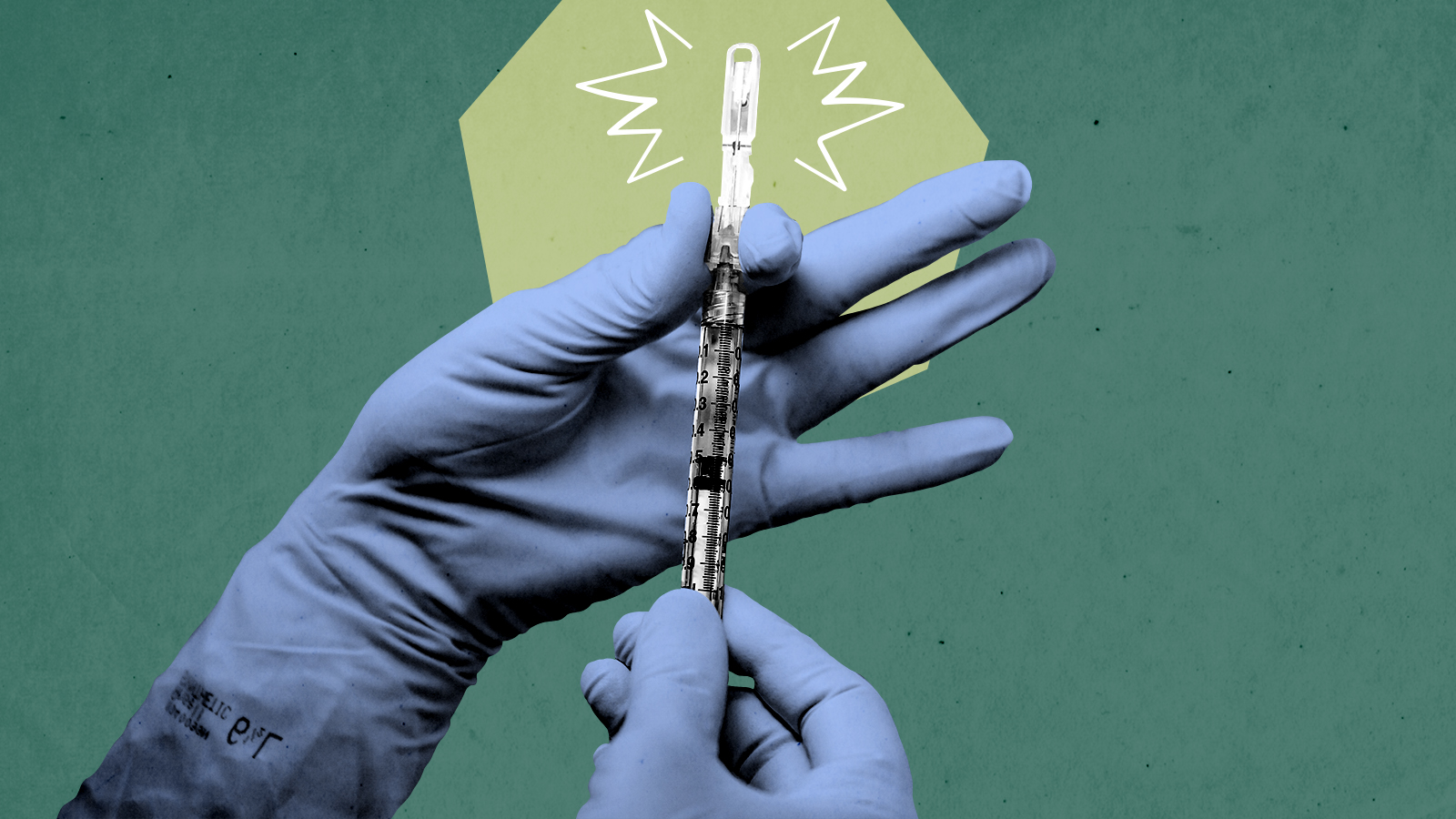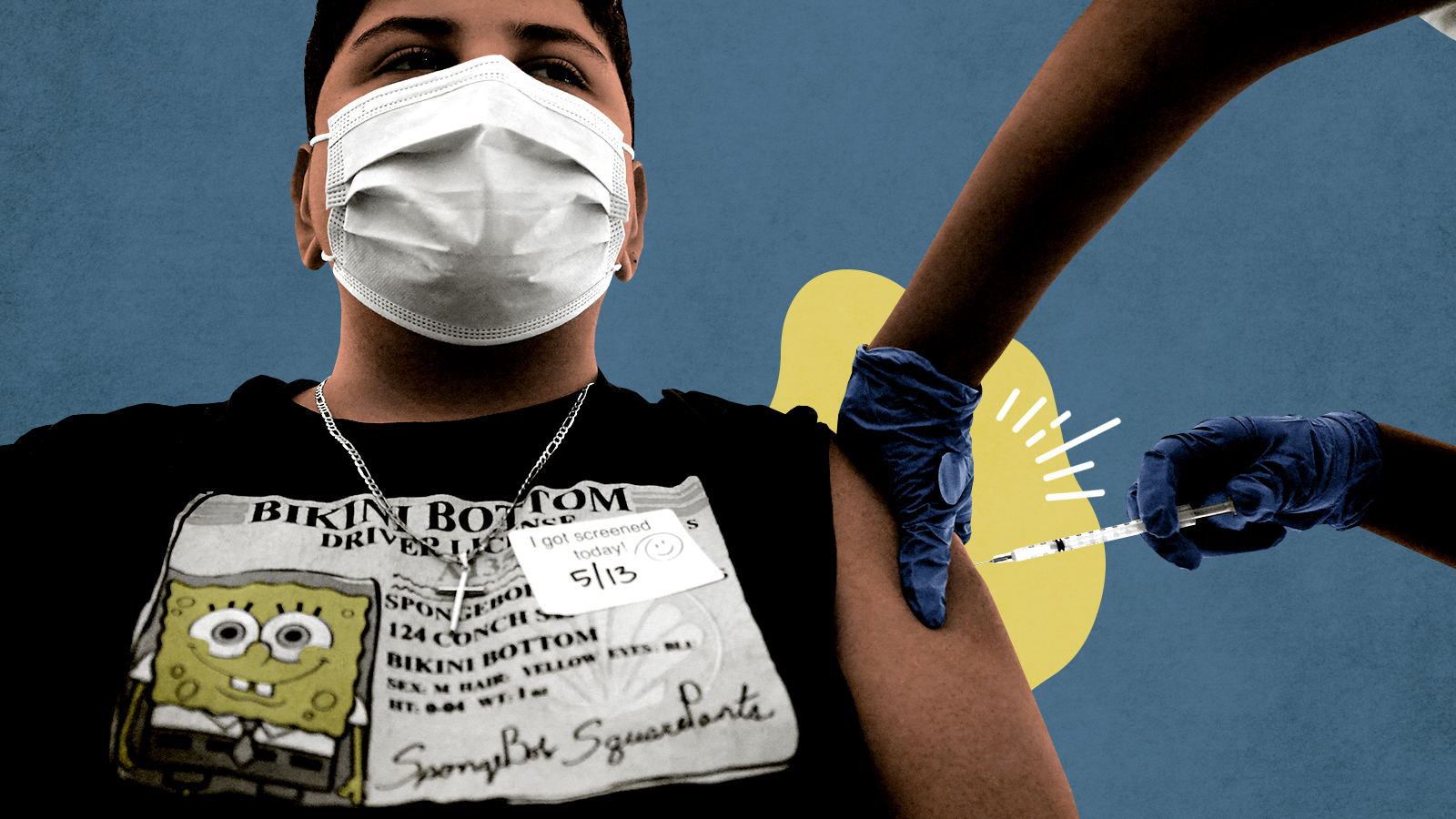Solving COVID: June 9, 2021
Our final edition of the Solving COVID newsletter

- 1. Where things stand
- 2. COVID cases declined at 'virtually the same rate' after CDC mask guidance
- 3. Nasal spray antibody treatment shows promise against COVID-19 in mouse study
- 4. Moderna's COVID-19 vaccine could be available for kids as young as 5 by early fall
- 5. A different kind of vaccine emerges
A free daily email with the biggest news stories of the day – and the best features from TheWeek.com
You are now subscribed
Your newsletter sign-up was successful
1. Where things stand
This is the final edition of our Solving COVID newsletter. The pandemic is by no means over, but in a sense, COVID has indeed been "solved." We now know that vaccines are the way out of this crisis. A number of them have proven remarkably effective at preventing severe illness and death, and at reducing spread of the virus. Over time we will fine-tune vaccination programs as we learn more about dosage, boosters, and long-term immunity. COVID-19 may never disappear completely, but with these potent tools in-hand, we are well equipped to bring it to heel. The international challenge we face is getting these shots into as many arms as possible, especially in areas with high-risk populations. If we fail, we risk prolonging the pandemic and endangering the progress we've made should a new vaccine-resistant variant emerge and sweep across the globe in yet another devastating wave. Let us hope we win this race against time.
The Washington Post The Guardian
2. COVID cases declined at 'virtually the same rate' after CDC mask guidance
Despite fears that the CDC's mask reversal could potentially lead to a COVID-19 spike, cases in the United States remain in decline, The New York Times' David Leonhardt writes. New COVID-19 cases have been down by almost 75 percent since the middle of April, the Times noted, and the seven-day average recently declined to less than 20,000 for the first time since March 2020. "A crucial point is that the loosened guidelines probably did not cause many people to change their behavior in ways that created new risks," Leonhardt writes. When it was first announced, the CDC's mask guidance was criticized by some experts as being too abrupt. Overall, the data suggests "the optimists were better prognosticators than the pessimists," Leonhardt says, and when it comes to unvaccinated Americans who may have stopped wearing masks because of the guidance change, "there don't seem to be enough of them to increase the spread of the virus."
The Week
Escape your echo chamber. Get the facts behind the news, plus analysis from multiple perspectives.

Sign up for The Week's Free Newsletters
From our morning news briefing to a weekly Good News Newsletter, get the best of The Week delivered directly to your inbox.
From our morning news briefing to a weekly Good News Newsletter, get the best of The Week delivered directly to your inbox.
3. Nasal spray antibody treatment shows promise against COVID-19 in mouse study
Researchers report in the journal Nature that a COVID-19 antibody treatment they engineered has proved very effective at neutralizing more than 20 variants of the virus, at least in a study involving mice. Antibody treatments for COVID-19 have not been very popular among doctors, partly because they are delivered intravenously and require high doses to be effective. The new treatment, created by attaching an immunoglobulin M (IgM) neutralizing antibody to the IgG antibodies used in most current antibody drugs, is delivered through a nasal spray. The researchers report that when they sprayed the designer IgM antibody into the noses of mice six hours before or after the mice were infected with the coronavirus, it sharply cut the amount of virus in the mice's lungs two days later. This is a "big feat of engineering," said Guy Gorochov, an immunologist at Sorbonne University in Paris, but the study leaves a lot of open questions about how effective the treatment will be in humans.
4. Moderna's COVID-19 vaccine could be available for kids as young as 5 by early fall
Moderna's CEO Stéphane Bancel expects the company's COVID-19 vaccine will be available for kids as young as 5 by early fall. "I think it's going to be early fall, just because we have to go down in age very slowly and carefully," he said Monday during a virtual event. Moderna is currently testing its vaccine on children, and Bancel thinks the data will become available sometime in September, CBS Boston reports. Children are typically at lower risk of developing severe cases of COVID-19, but those with underlying health conditions are more likely to be hospitalized. As of now, children as young as 12 can receive Pfizer's vaccine, which uses the same mRNA technology as Moderna, and the company is also running a trial for the 5-11 age group.
A free daily email with the biggest news stories of the day – and the best features from TheWeek.com
5. A different kind of vaccine emerges
A COVID-19 vaccine different from those made by Moderna, Johnson & Johnson, and Pfizer could be available to Americans "as soon as this summer," NPR reports. The three vaccines currently authorized for use in the U.S. work by instructing the body to manufacture something that looks like a piece of the virus, but isn't. Then, if ever infected with the real virus, the immune system is prepared. The new protein subunit vaccine, however, already contains that all-important bit, known as the spike protein, meaning the body doesn't have to produce it on its own. What's more, the protein subunit vaccine doesn't require "special refrigeration," and also contains an "adjuvant" that makes the shot "even more protective," per NPR. The technology itself isn't novel — there are hepatitis B and pertussis vaccines that use the same science. But the first COVID-19 iteration will likely come from biotech company Novavax, which is reportedly hoping to file for authorization in "the U.K., U.S., and Europe in the third quarter."
-
 The 8 best TV shows of the 1960s
The 8 best TV shows of the 1960sThe standout shows of this decade take viewers from outer space to the Wild West
-
 Microdramas are booming
Microdramas are boomingUnder the radar Scroll to watch a whole movie
-
 The Olympic timekeepers keeping the Games on track
The Olympic timekeepers keeping the Games on trackUnder the Radar Swiss watchmaking giant Omega has been at the finish line of every Olympic Games for nearly 100 years
-
 Solving COVID: June 2, 2021
Solving COVID: June 2, 2021feature Life-long immunity, a breakthrough on blood clots, and more
-
 Solving COVID: May 26, 2021
Solving COVID: May 26, 2021feature America's vaccine milestone, Pfizer's combo drug, and more